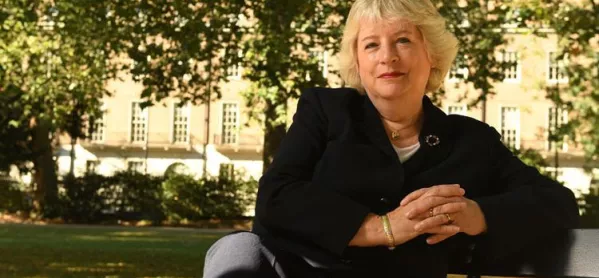- Home
- Exclusive: ‘Why open schools in June?,’ teachers ask PM
Exclusive: ‘Why open schools in June?,’ teachers ask PM

The prime minister must be “clear and honest” about the “trade-off” related to the risks of reopening schools to more pupils from 1 June, teachers have said.
And the government should provide “clear and timely” guidance for schools on how to open to more pupils, as it “cannot divest itself of responsibility” for the “serious consequences” that may ensue, according to the Chartered College of Teaching.
In a letter addressed to prime minister Boris Johnson, Professor Dame Alison Peacock, chief executive of the Chartered College, said ministers should be open with teachers if their decision to reopen schools to more pupils is “as much about the economy and enabling parents to return to work as it is about learning”.
PM: Track and trace will be ready when schools open
School openings: Ministers ‘listening to teachers’
Coronavirus: Scientists fuel revolt against 1 June school openings
The recent publication of the overview of scientific guidance received by the Department for Education was “a positive step”, she said, but it “lacks references and details of the studies used to inform the advice within”.
Coronavirus: Safety fears about reopening schools
“This undermines confidence in the decisions that are being made and the assurances that opening schools more widely will be safe,” she added.
Dame Alison said scientific experts have suggested that reopening schools remains “too high-risk”, due to a high caseload and the lack of a full testing and tracking system, and called on the government to make the research used to inform decision-making publicly available on an “ongoing basis”.
She added that teachers are “rightly concerned” about being asked to return to school at the risk of their own health, the health of their families and the health of their pupils.
They “deserve reassurance” that they will be supported when they return, she said, and it is “crucial” for the government to be “mindful of the limits to what they can reasonably be expected to do”.
Dame Alison also criticised the DfE for often releasing guidance “too late”, meaning “schools begin to make plans which then must be changed, or they do not have time to develop their approaches fully”.
“Given the inevitable risks to larger numbers of pupils returning to school, the decisions made around the approaches schools take may have serious consequences, and the government cannot divest itself of responsibility for these,” she said.
“The guidance released so far has, in some cases, shown a lack of understanding of what is practical and feasible in schools.”
She said that any guidance produced by the DfE must be “clear and timely”, and it is “imperative” that teachers are listened to, as they are “experts who should be valued and heard - not criticised”.
Meanwhile, the government should ensure that any questioning of unions’ motives for standing up for their members are “robustly rebuffed”, she said.
Dame Alison added that, while she recognised the impact that school closures may have on disadvantaged pupils, “it is not clear how reopening schools to selected year groups is the most effective way to prevent the disadvantage gap from widening still further”.
The letter states that the Chartered College is “urgently” seeking clarity on five key areas relating to the reopening of schools to more pupils. These are:
- Detail on the specific scientific evidence base for schools being opened more widely,
- Clarity of the risk and purpose of reopening schools more widely before the summer.
- Clear guidance with sufficient notice for schools to make use of it.
- A pledge to value the contribution of teachers and school staff, and the prioritisation of health and wellbeing.
- A commitment to ongoing, meaningful consultation with the teaching profession
A DfE spokesperson said: “We want children back in schools as soon as possible because being with their teachers and friends is so important for their education and their wellbeing.
“Plans for a cautious, phased return of some year groups from 1 June, at the earliest, are based on the best scientific and medical advice. The welfare of children and staff has been at the heart of all decision making.
“We have engaged closely with a range of relevant organisations, including the unions, throughout the past eight weeks, including organising for them to hear directly from the government’s scientific advisers last Friday, and will continue to do so.
“We have also published detailed guidance on the protective measures schools should take to reduce the risk of transmission.”
Number 10 pointed to a statement made by the prime minister’s spokesman earlier today.
It said: “We have said we want children back in school as soon as possible and from 1 June at the earliest, but only if it is safe to do so.
“We continue to work closely with teachers, schools and unions - as we have done for the past eight weeks - and have already published clear guidance on how schools can open in the safest possible way.”
Keep reading for just £1 per month
You've reached your limit of free articles this month. Subscribe for £1 per month for three months and get:
- Unlimited access to all Tes magazine content
- Exclusive subscriber-only stories
- Award-winning email newsletters



